Overview of the Models
The Philosophy Intrans is a traditional satchel design that will look familiar to all. I asked for the brown and tan model, but there are several other colour schemes to choose from as well. Its dimensions 14.5x12x6", the Intrans will fit a full sized laptop and more.
The proportions of the pannier itself are equally suitable for heavy-duty Dutch bikes and for more delicate roadbikes or mixtes. Although large, it does not give the impression of overwhelming a bike, as many other panniers do. And despite its size, heelstrike can be avoided on the majority of bike and rack combinations thanks to the adjustable hooks of the mounting system (details later in the review).
To my eye the Intrans looks most "at home" on a large, classic, upright bicycle - but this is a matter of personal taste.
Once opened, the satchel reveals a slight, expandable "roll top" - making it a bit more roomy than it appears to be when closed. The inner fabric is off-white. Inside is a suspended compartment with two medium pockets. A wooden ruler is attached to the base of the outer flap and acts as a support for the leather handle.
The Philosophy Burnside is a more unusual pannier. Narrower and longer than the Intrans, its outside dimensions are 11.5x14x6". The narrower design makes it ideal for bicycles with short chainstays and small racks.
Though it does not look out of place on a heavy upright bicycle either. It is not a small pannier, just a differently oriented one. A clever design that is both roomy and avoidant of heelstrike.
Inside is the same suspended double-pocket as on the Intrans, only narrower.
The genius of the Burnside design is its expandability. While on the outside, it looks like a classic pannier, once opened it reveals itself to be a roll-top, offering considerably more room than one would have expected (the expandability feature is more dramatic than on the Intrans).
Here is the Burnside with the buckles open. Because the roll-top expands upwards, there is no possibility of heelstrike when the bag is opened; you can fill it will groceries and keep cycling.
This is what the Burnside looks like filled with 1.5 bags worth of groceries.
Features
Both the Intrans and the Burnside panniers have a number of distinct and appealing features. The US-made 23oz tri-ply cotton is water resistant, oil resistant, and breathable. The leather is vegetable tanned and likewise made in the USA. Buckles and D-rings are stainless steel.
Detachable messenger straps are included with both bags, as are leather teathers for the optional attachment of rear reflectors. The reflector can be moved from one D-ring to another, depending on what side of the bike you attach the pannier to.
The buckles feature snap-closure attachment, making the bags fast and easy to open and close on the go.
The snaps are heavy duty and secure.
The satchel-like Intrans pannier comes standard with a leather handle, and such a handle can also be added to the Burnside as an optional extra feature.
Mounting System
Philosophy panniers feature the Rixen & Kaul Klickfix mounting system - a well-tested system that is also used by Berthoud and Carradice. Having tried several other pannier mounting systems previously, this is my favourite one so far. It took me a few minutes to understand how to operate the hooks so that they close around the rack tubing, but once I got it they were simple and quick to use.
The R&K system is adaptable to racks with a variety of tubing diameters (8-16mm), making it extremely versatile. The hooks are not only large enough for racks with thick tubing, such as my Gazelle, but they are also sprung - which allows them to close just as tightly around racks with thinner tubing, eliminating bouncing.
The hooks are attached to a long aluminum rail, along which they can be slid to a position that avoids heel strike even on bikes with shorter chainstays.
The lower hook is supplementary, and helps keep the bottom of the bag from bouncing or flapping. The plastic side-hook slides along the rail and clips to the racks stays.
I have tried the R&K Klickfix system on four bicycle racks so far: The Velo Orange Constucteur Rack with thin tubing, the handmade Bella Ciao rack with medium tubing, the Gazelle rack with thick tubing, and the Pashley Roadster rack with monstrous (even thicker than the Gazelle) tubing. On the Pashley Roadster rack, the R&K hooks are a tight fit, possibly too tight for recommended use. On all the other racks, the mounting system fits without issues. Regarding the Pashley Roadster rack, note that the large Ortlieb QL-2 hooks fit equally tightly, and note also that the Pashley Princess does not use the same rack as the Roadster and the R&K system should fit it easily. It's possible that the tubing of this particular bike's rack is simply too thick for any pannier.
Criticisms
It took me several weeks to take all the pictures used in this review and to test both panniers, and during all this time I have been trying to come up with something critical, but not having much success. As far as functionality goes, I can't really think of anything substantial. One point to note, is that when I wore the Burnside over my chest "messenger style" off the bike, the lower (supplementary) sliding hook got caught on some of my clothing - namely the hems of cardigans. This only happens when the bag is in some positions, not others, and it does not happen when the bag is worn over one shoulder. I'd prefer it if the Burnside had a leather handle and I could simply carry it in my hand - and as mentioned earlier, Philosophy informs me that this is now an option. My only other suggestion would be to possibly reconsider the colour of the interior and the shoulder strap: The off-white is attractive, but a darker colour would hide stains and age better. Other than that, I honestly cannot think of anything. These panniers are exactly what I wanted in the sense that they are classic, roomy, and can fit all of my bikes without heel strike or rack compatibility issues.
Which to Keep?
The Co-Habitant will be returning the black Burnside, because he does not feel comfortable with the hooks' tight fit over his Pashley's rack. And as much as I love both the Intrans and the Burnside, I will keep just one pannier, as I neither need nor can afford both of them. It's a tough call. The Intrans is a more traditional satchel design and feels somewhat better balanced in my hands. The Burnside fits all of my bikes in such a way that the hooks don't need to be adjusted from one bike to another, which makes it more convenient for multiple-bike use. I think that this feature may end up winning, and I will keep the Burnside while tearfully returning the Intrans. Or maybe not! Either way, Philosophy panniers are high quality, well though-out, versatile and classic products that are well worth their price and are unlikely to disappoint. Best of luck to this new company.

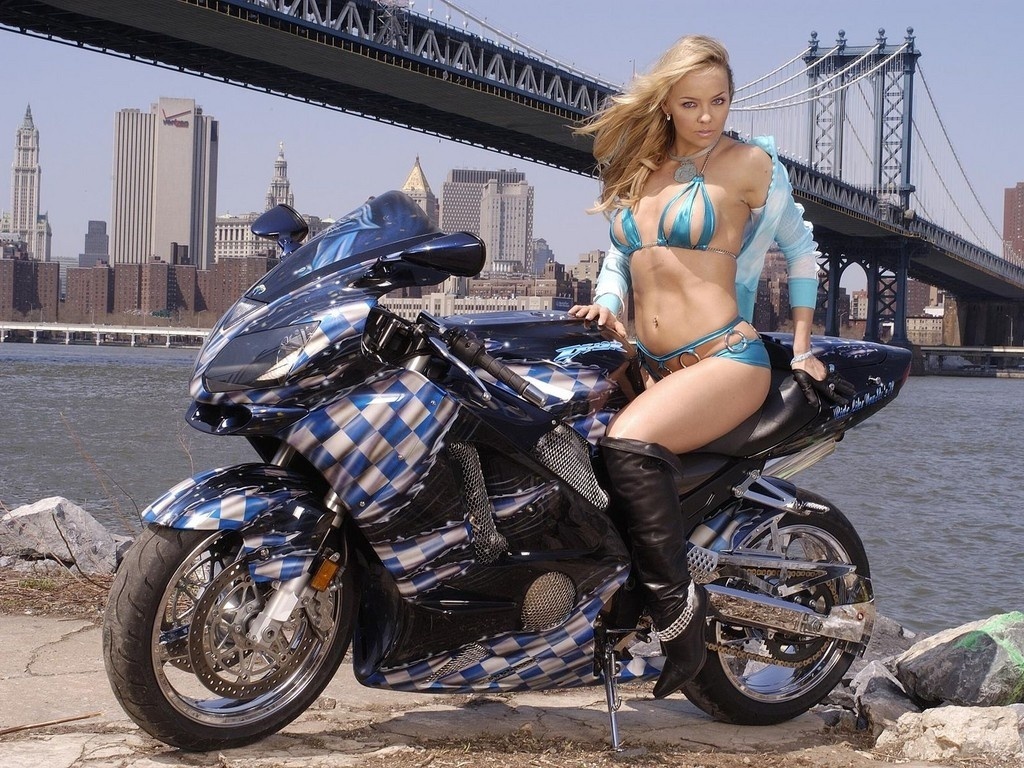





.jpg)

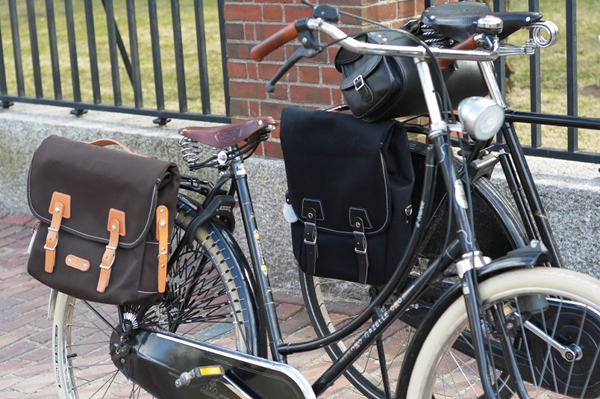
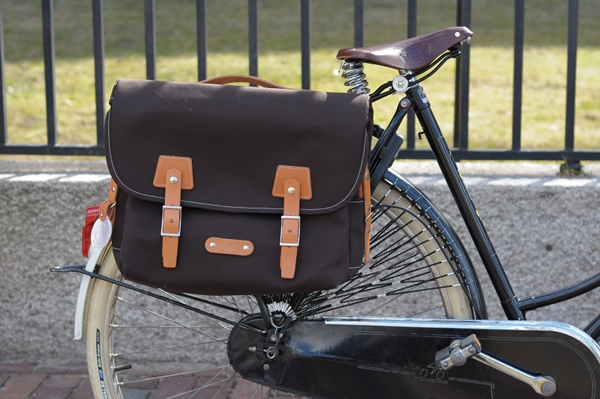
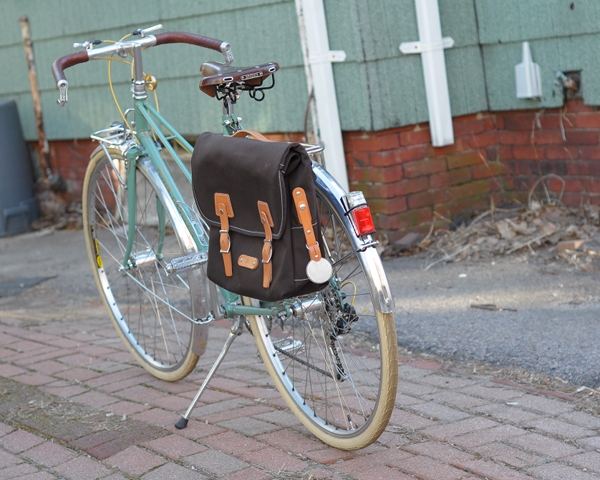

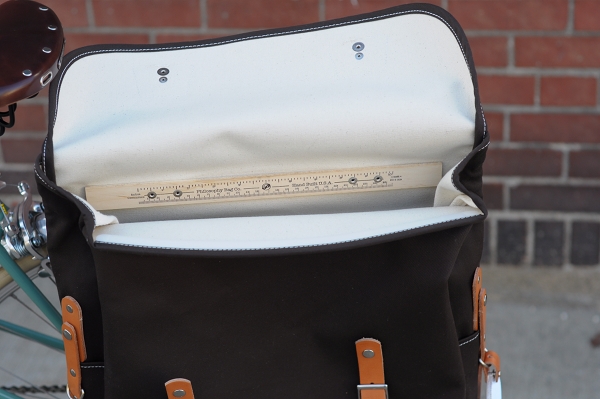

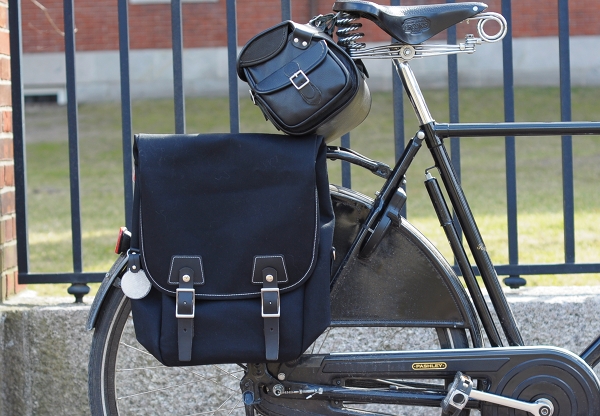
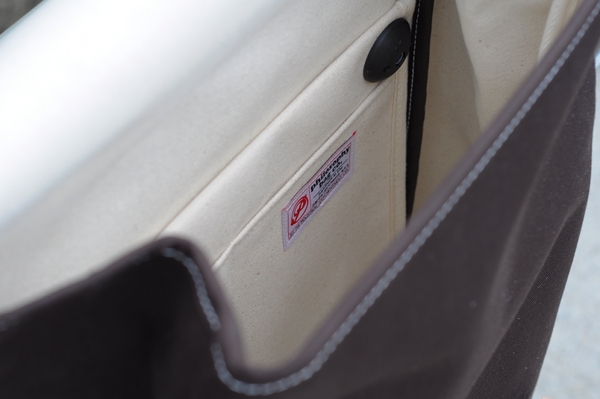
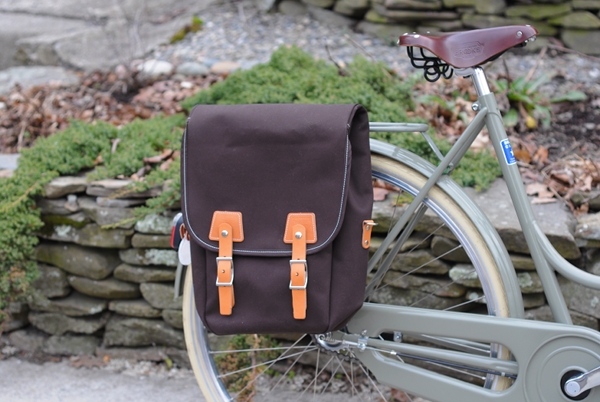
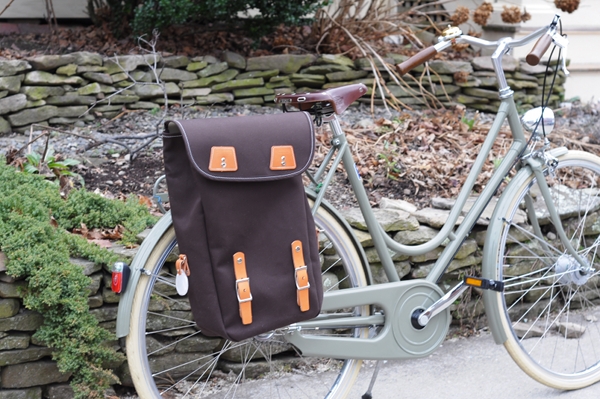

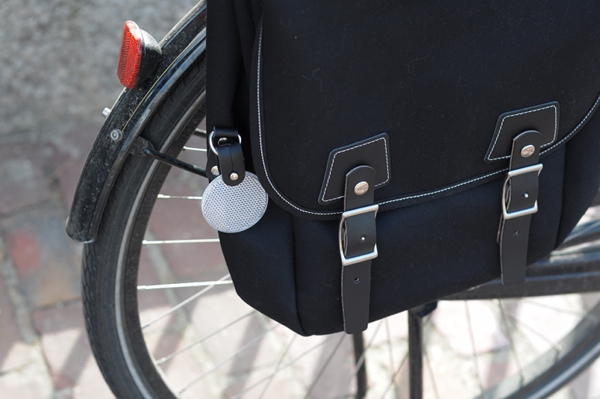
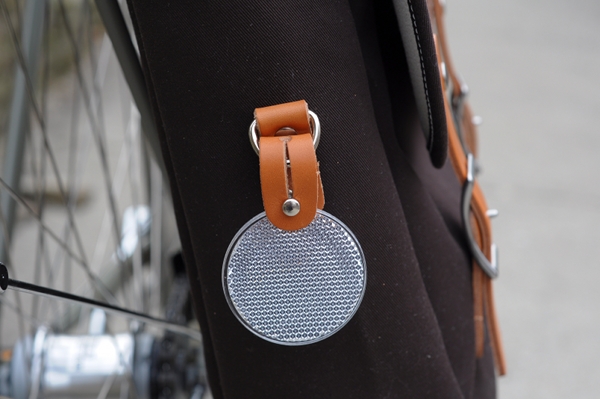

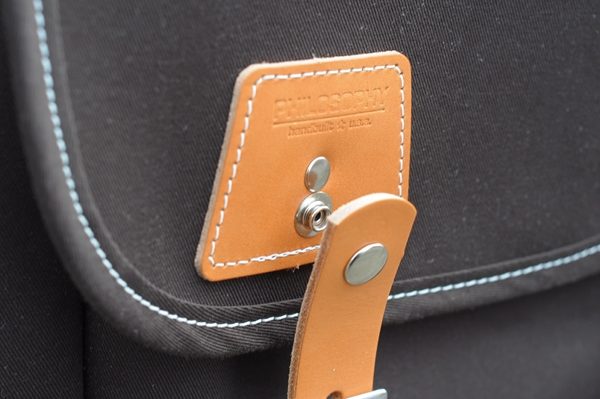
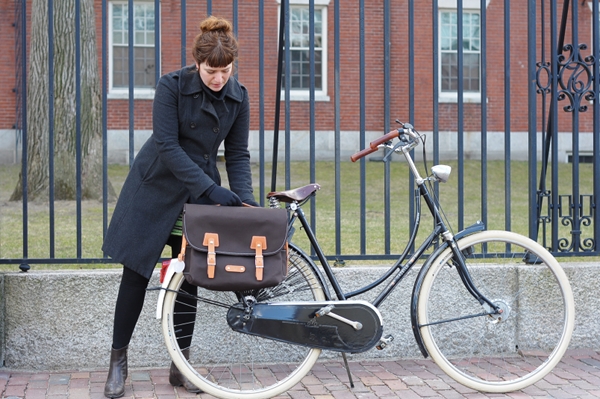

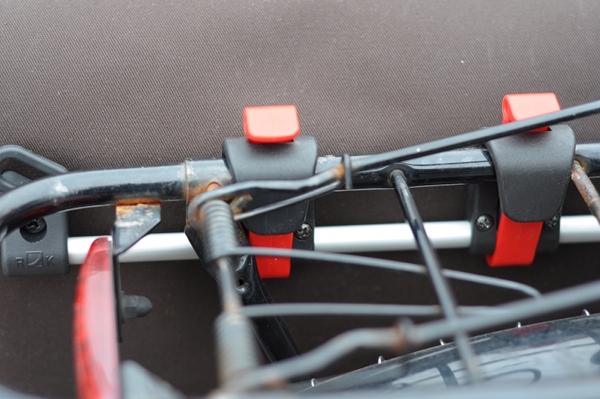
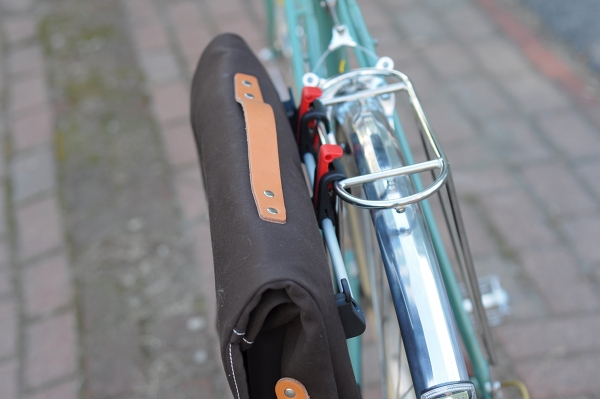
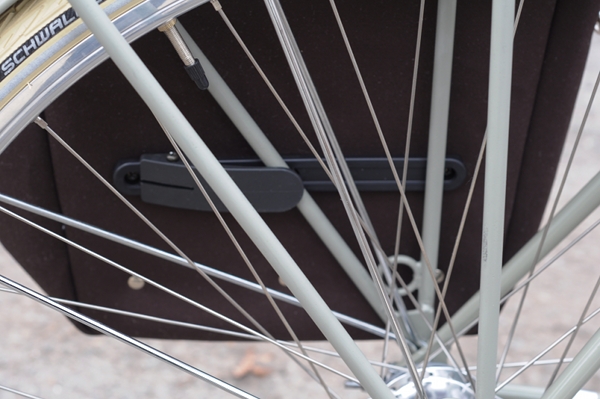
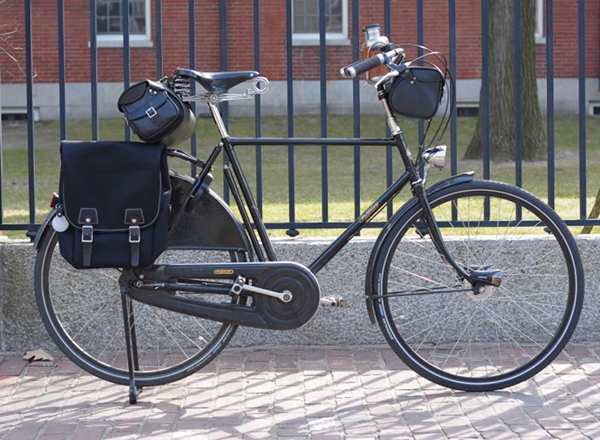
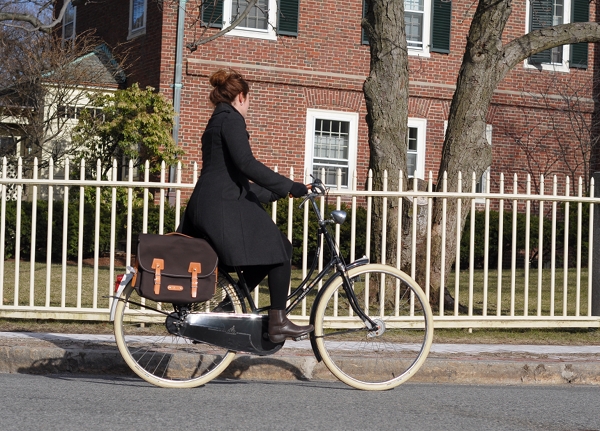







0 comments:
Post a Comment